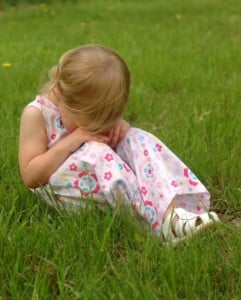By Detective Don Howell
Having worked sexually motivated crimes for three decades, I’ve heard “I never told anyone” thousands of times. It’s frustrating beyond words to see loving, caring parents who want to raise safe children miss the on-going molestation of their kids, which is occurring right under their noses. Why do they miss it? The answer is really quite simple; they don’t know what to look for and they never asked the right questions. This lack of parental understanding is the foundation for my soon to be released book.
This book is intended to be a game changer on how America addresses the victimization of children. For decades, we have heard, “I never told anyone” when we should be hearing, “No one ever asked.”
This may sound like a simple shift in perspective, but it’s so much more. Think of the molested child or adult who has been telling themselves for decades, “I never told anyone.” The very statement implies that the child/adult is somehow at fault, for not telling. When we grow up, we tend to forget how we perceived the world as children. As adults, with fully developed brains and, therefore, thinking power, we look back, see what happened, and say, “I should have told someone” or “I should have done something different” or “I should have stopped it, somehow”. What people forget is that during the time of the molestation, they had the brain power of a child and therefore didn’t have the ability to think their way out of the situation.
Part of this thought process comes from the mantra, if someone touches you, tell someone. This sounds good, from an adult point of view, but to a child it makes little or no sense at all. Can a four year old distinguish between bath-time touching and something more sinister? How many times a day do we ask our children, “Did you brush your teeth?” or “Did you clean your room?” or “Did you hit your sister?” We have to keep asking because children, by their very nature, don’t volunteer a lot of information. I’ve never had one of my kids, or grand kids, come to me and volunteer, “I didn’t clean my room today” or “I decided not to do my homework” or “I haven’t brushed my teeth in a week”. Children just don’t work that way, yet we have routinely placed the responsibility of identifying child molest on their shoulders.
If you were molested as a child and have been carrying around the burden that you never told, does it change your thinking – take a load off your shoulders – to know that the truth is, no one ever asked?
Does it change the game to understand that it’s up to parents, grandparents, aunts and uncles or other adults to ask the question? That’s what this book is about; changing the game and in doing so, creating an opportunity to drastically reduce the incidents of child molestation.
The other part of this game change is to know what to look for and how to understand what your children are actually saying. This book lays all of that out; it tells you the secrets molesters don’t want you to know.
Society doesn’t need to be afraid of sex offenders. Society needs to understand how they think and what they do. Safety comes from knowledge – not fear. The first step is to understand that child molesters are NOT hiding behind every mailbox. Your children are really pretty safe. When you change the game, from telling to asking, your kids will be even safer.
The above is an excerpt from Beyond Stranger Danger, Smart Parents Raising Safe Kids by Don Howell and Chris Iverson. Twenty, easy to read, micro-stories instruct parents on what to look for and what to ask.
Don Howell is a retired detective with over 40 years’ experience in the Huntington Beach Police Department (California) who still works part-time on sex crimes and cold cases. He has taught at the University of Southern California’s School of Sociology for 12 years and written several books on sex crimes. He is an editorial advisor for the Culture & Policy department of Cancer InCytes magazine.

Granted it would be unreasonable to blame a victim of any sexual assault to be comfortable with making the assault public, it wouldn’t be a fair expectation of a guardian to expect a child to be a victim.